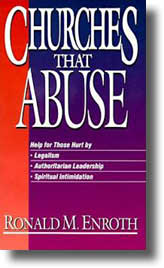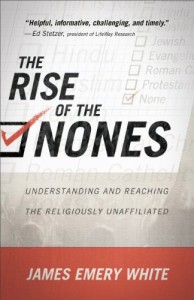Renea McKenzie takes a look at two books providing thoughtful responses to being Christian and single.
While studying at L’Abri Fellowship, I encountered two books that really made an impression upon me for the simple reason that, of all the many books I come across in my years of work with students, my studies, and my personal reading, I had never seen even the likes of anything like them. I’m speaking of Laura Smit’s Loves Me, Loves Me Not and Lauren Winner’s Real Sex. These two books contain what’s desperately missing in the “Christian living” section of our bookstores, particularly for singles.
A Theology of Romance
 I really appreciate and highly recommend Laura Smit’s book, Loves Me, Loves Me Not: The Ethics of Unrequited Love.{1} It isn’t your typical book on singles and romance. Right away, the subtitle lets you know this book is special because while there are countless books on mutual love and our moral responsibilities as Christian lovers, hardly anyone writes about our responsibility toward virtue when feelings are not mutual. Smit begins with a “theology of romance” in which she details God’s nature as love, God’s creational plans both in Eden and in the New Heaven and the New Earth, sin’s effect on those plans, and finally, virtuous and vicious romance, how sin twists God’s intentions for love and how we can be virtuous by shaping our romantic lives to God’s plans. This framework is centered on New Testament teachings on marriage and family and singleness, teachings many Christians, myself included up to now, have been successfully avoiding.
I really appreciate and highly recommend Laura Smit’s book, Loves Me, Loves Me Not: The Ethics of Unrequited Love.{1} It isn’t your typical book on singles and romance. Right away, the subtitle lets you know this book is special because while there are countless books on mutual love and our moral responsibilities as Christian lovers, hardly anyone writes about our responsibility toward virtue when feelings are not mutual. Smit begins with a “theology of romance” in which she details God’s nature as love, God’s creational plans both in Eden and in the New Heaven and the New Earth, sin’s effect on those plans, and finally, virtuous and vicious romance, how sin twists God’s intentions for love and how we can be virtuous by shaping our romantic lives to God’s plans. This framework is centered on New Testament teachings on marriage and family and singleness, teachings many Christians, myself included up to now, have been successfully avoiding.
Smit notes the importance of pouring a new understanding of marriage and family into new wineskins. In Matthew chapter 19, Jesus makes this astonishing statement: “For some are eunuchs because they were born that way; others were made that way by men; and others have renounced marriage because of the kingdom of heaven. The one who can accept this should accept it” (v. 12). And shortly after that, in response to the Sadducees, Jesus declares, “At the resurrection people will neither marry nor be given in marriage; they will be like the angels in heaven” (Matt. 22:30).
Jesus also asserts that the way we think about family changes when he enters the scene. Jesus is teaching and his biological family interrupts him, expecting that they deserve more of Jesus’ attention than the crowd. And it was natural for them to expect this. But again, Jesus turns social expectation on its head, responding, “‘Who is my mother, and who are my brothers?’ Pointing to his disciples, he said, ‘Here are my mother and my brothers. Whoever does the will of my Father in heaven is my brother and sister and mother’” (Matt. 12:48-50).
Jesus seems to be saying marriage is not ultimate; only the union between Christ and his Church is ultimate. He is also saying our biological families are not ultimate; only the family of faith is ultimate. Saying all this about marriage and family was a big deal. In Jesus’ day, everyone’s number one loyalty was to his or her biological family, people who were married were higher on the social ladder than those who were not, and couples who had children (well, sons) were even higher. Jesus came and changed our primary loyalties, and he declared that the only members of society who are valuable to God’s kingdom are those who do God’s will, regardless of their social status.
By looking into these passages of Scripture, Smit is asking us to consider: Should Jesus’ teachings change the emphasis American Christians place on marriage and family? Why do most unmarried Christians feel social pressure from the church to get married and start a family? They also feel excluded from congregations whose messages and activities have a biological family focus instead of a spiritual family focus. How then can we change our focus and the ways in which we interact with one another so that we are following in Jesus’ revolutionary footsteps?
A Theology of Romance Gets Personal
Smit suggests that not only will the way we think about (and consequently our behavior toward) others change, but so will the way we think about our own lives. To give you an example of how we, the Christian culture in America, think about marriage, specifically the expectations we have regarding marriage in our own lives, let me share with you this story.
Several weeks ago, I was subbing in AWANA, and the third through fifth grade girls were asked what they foresaw in their future. Every girl there stated, rather confidently, “I’m going to go to college then get married.” What a wonderful vision for one’s future! What’s interesting is that each child had the same vision for her future, which simply speaks to the fact that marriage is socially expected for church girls (and boys too as a matter of fact). It’s what Christians consider normal and the “natural thing to do.” Again, marriage is wonderful. The question is, are we limiting ourselves, and our daughters, and ultimately, Christ and the Church, when we consume this view of marriage and personhood wholesale? Is it a limited vision rather than a Kingdom-vision?
To give you a clearer picture of what I mean by “Kingdom-vision,” let’s look directly at Smit. She notes:
Our primary loyalties shift when we come into contact with Jesus. Whereas in the Old Testament the family was one’s primary loyalty, Jesus redefines this, saying, “Whoever does the will of my Father in heaven is my brother and sister and mother” (Matt. 12:50). Jesus is our family now and the community of faith is our primary social commitment. “Whoever loves father or mother more than me is not worthy of me; and whoever loves son and daughter more than me is not worthy of me; and whoever does not take up the cross and follow me is not worthy of me. Those who find their life will lose it, and those who lose their life for my sake will find it” (Matt. 10:37-39). Jesus insists that his followers live sacrificial lives that will make little sense in the eyes of the world.{2}
That’s interesting, isn’t it? Think for a moment about the political implications for the Religious Right. Marriage and family concerns wouldn’t cease to exist, but would rather exist within a broader context, under a farther-reaching banner. What might such a banner look like? Let’s look again at Smit. She posits:
If all Christians everywhere were to take [seriously Jesus’ teaching that marriage is not ultimate], stop getting married, and stop having children, perhaps the church would start to grow through evangelism rather than through procreation. In this case, the church would be a blessing to the nations, just as we are supposed to be, with most of our nurturing energy going outside our own community. Finally, if we actually converted everyone in the world, and everyone in the world then embraced continent singleness so that no children were being born (a rather unlikely scenario), wouldn’t that mean it was time for Jesus to come again? All Christians are supposed to be longing for his second coming and doing everything possible to bring it about.{3}
Wow! What a bold statement! Well, don’t worry, in the very next lines she says,
I do not believe that all Christians need to be single [or stop having children], but all Christians must come to terms with Jesus’ teaching that marriage is not ultimate. Taking [this] teaching seriously will change how we think about the possibility of marriage in our own life and how we treat people around us—particularly within the church—who are single.{4}
I think it important to note that throughout her entire book, Smit never once devalues marriage or children—particularly within the church. And that is part of the point. Jesus came and demolished value hierarchies society had placed upon people. The apostle Paul states that this is to be the case particularly within the church: “There is neither Jew nor Greek, slave nor free, male nor female, for you are all one in Christ Jesus” (Gal. 3:28). Marriage and children and sex and singlehood and abstinence and romance each offer valuable life-pictures that teach the church about who God is and our relationship with him.
With that in mind, we are now ready to consider the romantic lives of unmarried folk with nuance. Smit’s book challenges Christians to govern our romantic relationships with a Kingdom-perspective, reminding us to readjust our ingrown eyeballs: to look up toward God and out toward others. How do we do that when we’re in love with someone who doesn’t love us back?
The Ethics of Unrequited Love
Loves Me, Loves Me Not helps us learn how to behave virtuously in loving someone who does not return our romantic affection. It also helps us to behave virtuously toward someone who cares romantically for us, when we desire only friendship for him or her. Smit encourages her readers to consider true Christian charity in these situations and whether or not charity—or we might use the word agape—supports or rejects society’s scripts for such roles. Whether we realize it or not, our society has our lines and stage directions all laid out. From film and literature alike we know how to behave if we find our love rejected. We will hold on to our rejected love by continuing to pursue until resignation is absolutely necessary; in which case, we resign to martyrdom upon the cross of love, sometimes in a gallon of ice cream and sappy movies, sometimes quite literally, leaving our legacy behind on the suicide note. Or, we simply move on. It is their loss, and undoubtedly there is someone out there who is more deserving of us.
Certainly both scenarios can be true. Sometimes we ought to continue to pursue and not give up too quickly; sometimes our love is misplaced upon someone undeserving and we must recognize the fact and move on. But motives matter. That is Smit’s point.
How do we counter our ingrained selfish patterns and social scripts when we love someone who doesn’t love us back? I’m not going to give away the whole book; I’m hoping you’ll pick up your own copy. But I will pass on one practical tip from Smit: we must desist from wanting to posses the other person. Now, that sounds creepy in the restraining order kind of way; and you’re thinking, I don’t do that. But we all do it. We do it when we create a whole imaginary life with our crush—where we go on dates, how we sit together in church, how he kisses me hello, how she makes my friends envious. We also get possessive of our crush when we allow our hurt and jealousy to win over our charity (love) for him or her. Because if I didn’t think he and his affections were (or ought to be) mine I wouldn’t be jealous that, in reality, he’s interested in another girl. But the truth is he’s a person, not an object; and as a person he is free to be interested in whomever he chooses. And if I really love him as a person rather than lust after him as an object, I will honor, value, and even celebrate that freedom. Not that at times it won’t be painful; it will be.
What about when someone loves us and we don’t return their romantic feelings? What’s easiest is to simply ignore that person. Don’t return his calls. Pretend you didn’t see her. Flirt with someone else right in front of her. Tell him you have to wash your hair. It’s much more difficult to actually continue to be that person’s friend, behaving in Christian love toward him or her, considering them to be better than yourself. Part of the reason this path is more difficult is because it makes you all the more attractive and difficult to get over, and it’s easier to convince ourselves that we’re doing the other person a favor by being a jerk.
Sometimes it is appropriate and necessary and loving to give the other person his space or to stop returning her phone calls. Sometimes it isn’t. Sometimes I wish God designed our relationships to be governed by clear-cut, black and white formulas: do this, get this result . . . always. But he didn’t. God designed our relationships to be governed by faith. So we have to work hard to live counter-cultural lives, acting out according to God’s script rather than what’s socially expected of us. Smit’s exhortation to consider what motivates our behavior is key. Are we responding lovingly or selfishly? And while motives cannot always be wholly separated or distinguished in such a clear-cut way, God always honors the search.
Smit has in Loves Me, Loves Me Not some very powerful exhortations for the church that I appreciate on two levels: one, she forces readers to think seriously about New Testament teachings on marriage, family, and singleness; and two, she gives singles in the church a voice, in part simply by writing a book that addresses the lives of unmarried folk in a thought-provoking, holistic, and meaningful way. If my brief look into the book has sparked your interest, and if you want the specific, and I think rather good, suggestions Smit makes as to how we can pursue loving virtue in our relationships, be sure to pick up a copy of this singular book.
Why We Need Another Book about Sex
Lauren Winner, author of Girl Meets God and, recently, Mudhouse Sabbath, put out a book in 2005 titled Real Sex: The Naked Truth about Chastity.{5} And that’s exactly what Winner designs to do: talk about sex in a realistic fashion, from a biblical worldview, that allows us to get past various myths, including the highly eroticized and romanticized beliefs about sex we frequently absorb from both the world and the church.
You’re familiar, no doubt, with the statistics on Christian sexuality. We don’t stand out as very different in our sexual behavior, which means our basic beliefs and ideas about sex must not be that different either. If all those books in the “Christian living” section of the bookstore aren’t helping us develop ideas regarding our sexuality that differ from social norms, if they aren’t helping us believe that what the Bible has to say about sex is relevant and true, something isn’t right. So what makes Winner different? Real Sex offers an alternative to the magazine-like “Seven Secrets to Sexual Purity” by stretching beyond spoon-fed “dos and don’ts” derived from proof-texted Scripture, and instead presents the case for sex within marriage from a holistic, biblical view of who we are and how we relate in the world sexually.
From the creation-fall-redemption narrative presented in the arc of the gospel, Winner posits that an important part of who we are is that we are embodied, and the main way in which we relate in the world sexually is communal. Chapter three is aptly titled “Communal Sex: Or, Why Your Neighbor Has Any Business Asking You What You Did Last Night,” and helps remind us that community is a part of the creational order; we were created in and for community. And though we have fallen from God’s original order for creation, he has, throughout history, made a way for his people to live redeemed, creational lives. When Jesus Christ came embodied to earth, he came as the Way, finally making it possible for those who believe to no longer live under compulsion of the fallen, distorted patterns of the flesh, but rather in habits redeemed and restored to God’s creational intent. Winner reminds us that Scripture flies in the face of our over-individualized, over-privatized American way, exhorting the community of the faith to be intimately involved in one another’s lives. She puts it this way:
The Bible tells us to intrude—or rather, the Bible tells us that talking to one another about what is really going on in our lives is in fact not an intrusion at all, because what’s going on in my life is already your concern; by dint of the baptism that made me your sister, my joys are your joys and my crises are your crises. We are called to speak to one another lovingly, to be sure, and with edifying, rather than gossipy or hurtful, goals. But we are called nonetheless to transform seemingly private matters into communal matters (53).{6}
Already we’re presented with a meaty alternative to the false views of sex, or we could say, unreal sex propagated in force by our surrounding culture. The next two chapters speak truth against the lies about sex we hear both from our culture and our churches. These chapters give readers an opportunity to take a step outside of their everyday, cultural surroundings and consider them. Opening up the conversation of sex and our sexuality to the whole of Scripture and to our Christian communities is like opening the windows of a dark room. By this light we see the lies our culture tells about sex, and we can work together to begin rejecting such ideologies, establishing a core understanding of human sexuality that, in fact, stands apart; we can develop beliefs and habits of a sacred sexuality. Winner points out that society tells lies, like “sex can be wholly separated from procreation” (64), cohabitation is a good practice-run (68), modesty doesn’t matter (71), and “good sex can’t happen in the humdrum routine of marriage” (77).
Of those four statements, which strikes you as most dangerous? We might think it’s the prolific idea of shacking up; and in fact, the church is usually pretty clear on its position regarding premarital sex. However, I would like to suggest that a subtle distortion is always more dangerous than an obvious one. Winner agrees; she states,
Too often we assume that contemporary American sexual life is a one-dimensional world of licentious prurience. Yet it may be more important for contemporary Christian ethics to constructively engage secular romanticism than to righteously denounce sexual libertinism. It is, after all, pretty easy for us Christians to distinguish ourselves from the sex-is-recreation ethic. The real question is not whether we can counter the message that sex is just like racquetball, but whether we can also articulate a Christian alternative to the regnant ideal of sex as an otherworldly, illicit romance, an escape from quotidian, domestic life (80).
Sex isn’t meaningful because it’s an erotic escape from everyday realities. Rather, sex is meaningful because it’s real (81). And while romance is certainly appropriate, even important, as part of sustaining love, if it serves merely to compartmentalize our lives rather than integrate them, our lives will be less, not more, fulfilling.
Getting Real
This next chapter is perhaps where we get a bit more personal: “Straight Talk II: Lies the Church Tells about Sex.” In an effort to do right and protect the biblical ethic of sex within marriage, and with honorable intentions, “the church tells a few fibs of its own” (85). Winner chooses to discuss four of these fibs: “premarital sex is guaranteed to make you feel lousy” (85), “women don’t really want to have sex anyway” (90), “bodies (and sex) are gross, dirty, or just plain unimportant” (93), and finally, that good sex is all about technique, a secular myth that we can, and should, Christianize (97).
I can’t talk about all of these ideas (and I wouldn’t want to give away the whole book!), but I do want to address a couple of them. I’m sure some of you are thinking, “Doesn’t premarital sex make you feel lousy, full of guilt and regret? And if it doesn’t, shouldn’t it?” It’s possible there’s more truth in the second thought than the first one because, let’s face it, sex feels good, even sinful sex. If it didn’t, premarital (and extramarital) sex would certainly be a lot easier to avoid. We wouldn’t need Winner’s book, or any other book, not to mention the community of faith, the Bible, or the Holy Spirit for that matter; at least, not insofar as we need them for our journey toward right-living (89). “What the church means to say,” posits Winner, “is that premarital sex is bad for us, even if it happens to feel great” (90).
But at least we’ve come to recognize that sex in marriage feels great and should feel great. And while it seems we may never be able to fully shake Gnostic parasites from the gospel, I believe churches have generally come to embrace marital sex as good. However, the message from the pulpit can still be a bit confusing, especially for women. Winner notes a study of teenage girls which shows the “strongest predictor of teenage virginity” isn’t church involvement or the youth group, but team sports (18). That may seem obscure, but athletics teaches girls (and boys) something about bodies being good, not to mention useful—for other purposes than sex. This is a message we are not communicating well.
What should we do? Have more church sports leagues? Perhaps. But, maybe not. We can, however, change the language we use when we talk about sex and modesty. Personally, as a woman who grew up constantly hearing from youth group and other parachurch media that my body was the vehicle of lust and destruction for young men everywhere, it took lots of time to unlearn negative associations about my body and become comfortable in my own skin, though perhaps less time than others; I played sports. The way we talk about sex and modesty in the church isn’t only damaging to women. To suggest that men simply can’t help themselves is to suggest that men are less than human, or that they can experience the fruit of the Spirit in all areas but lust. It is essentially degrading to men to imply that men are animals and women are angels, that somehow women are morally superior to men and therefore responsible for them (73). Certainly we are responsible to one another as brothers and sisters, but responsible for is another thing entirely.
The last few chapters of Winner’s book touch on topics such as kissing, pornography, and masturbation, and dish out practical—and I think rather good—ideas to guide us in practicing chastity within our caring, Christian communities. Winner reunites chastity with the other spiritual disciplines, and talks about what marriage, children, sex, and singleness teach the church, and why each is important in God’s economy, an economy of repentance and forgiveness. Placing sexual purity back within a story that’s bigger than itself makes the issue of chastity important, rather than indifferent; and gives it meaning by giving it context.
Notes
1. Laura Smit, Loves Me, Loves Me Not: The Ethics of Unrequited Love (Grand Rapids: Baker Academic, 2005).
2. Smit, Loves Me, 65.
3. Ibid., 71.
4. Ibid.
5. Lauren Winner, Real Sex: The Naked Truth about Chastity (Grand Rapids: Brazos Press, 2005).
6. Page numbers in the text refer to Winner, Real Sex.
© 2009 Probe Ministries


 In his book Churches That Abuse, Dr. Ronald Enroth carefully examines several of these churches throughout the United States. He reveals the cultic methods these groups use and points out several distinguishing marks of abusive churches. At this point I will briefly introduce each of these characteristics and some of my own. Later, I’ll discuss all these characteristics in detail.
In his book Churches That Abuse, Dr. Ronald Enroth carefully examines several of these churches throughout the United States. He reveals the cultic methods these groups use and points out several distinguishing marks of abusive churches. At this point I will briefly introduce each of these characteristics and some of my own. Later, I’ll discuss all these characteristics in detail.
 What made the Romans such a formidable force? Discipline and adaptability. Being able to march long distances and maneuver across a variety of terrain. Timing and distance determine the victor of any confrontation. To do this, they needed shoes that were durable and able to grip the ground firmly.
What made the Romans such a formidable force? Discipline and adaptability. Being able to march long distances and maneuver across a variety of terrain. Timing and distance determine the victor of any confrontation. To do this, they needed shoes that were durable and able to grip the ground firmly. We are also told to take up the Shield of Faith (Ephesians 6:16) to extinguish the flaming arrows of the evil one. The favored shield in the time Ephesians was written was the Roman scutum, a large shield that protected most of the soldier’s body, enabling the Romans to protect both themselves and each other in tight formations without sacrificing their defense when fighting in looser formations. Most deaths in ancient battles occurred after, during, and after a rout. Therefore projectiles were used to disrupt and to instill fear before the two sides met in melee. Standing firm against hails of projectiles was key to surviving the battle.
We are also told to take up the Shield of Faith (Ephesians 6:16) to extinguish the flaming arrows of the evil one. The favored shield in the time Ephesians was written was the Roman scutum, a large shield that protected most of the soldier’s body, enabling the Romans to protect both themselves and each other in tight formations without sacrificing their defense when fighting in looser formations. Most deaths in ancient battles occurred after, during, and after a rout. Therefore projectiles were used to disrupt and to instill fear before the two sides met in melee. Standing firm against hails of projectiles was key to surviving the battle. Finally, Ephesians 6:17 refers to the Sword of the Spirit, or the word of God. In conjunction with the scutum was the gladius, a short sword primarily used for thrusting and short cuts. It was the legionary’s primary weapon. After throwing their pila (specialized javelins) to disrupt the enemy formation, the Romans drew their swords and closed the distance to engage in hand-to-hand fighting. Their armor and discipline enabled them to weather the brutal melee far better than their opponents. Ideally, this caused the enemy to rout.
Finally, Ephesians 6:17 refers to the Sword of the Spirit, or the word of God. In conjunction with the scutum was the gladius, a short sword primarily used for thrusting and short cuts. It was the legionary’s primary weapon. After throwing their pila (specialized javelins) to disrupt the enemy formation, the Romans drew their swords and closed the distance to engage in hand-to-hand fighting. Their armor and discipline enabled them to weather the brutal melee far better than their opponents. Ideally, this caused the enemy to rout.

